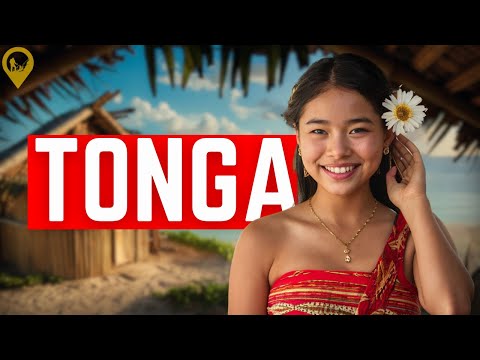
Tonga, a Polynesian kingdom comprising over 170 islands in the South Pacific, offers a rich tapestry of history, geography, and culture. Despite its small size and relatively obscure global presence, Tonga holds a significant place among Pacific Island nations due to its unique status as the only remaining Polynesian monarchy. Let’s explore Tonga in 10 minutes—covering its historical roots, geographical layout, and vibrant cultural traditions.
**Geography: A Scattered Island Kingdom**
Tonga is located in the southern Pacific Ocean, about two-thirds of the way from Hawaii to New Zealand. Its 170-plus islands are scattered over approximately 700,000 square kilometers but have a combined land area of just 747 square kilometers—making it one of the smallest countries in the world by area. These islands are divided into four main groups: Tongatapu, Ha’apai, Vava’u, and ‘Eua.
Most of the population lives on Tongatapu Island, where the capital city Nuku’alofa is also located. The topography varies from low-lying coral islands to volcanic peaks—the highest being Mount Kao on Kao Island in the Ha’apai group. The climate is typically tropical with a wet season from November to April and a dry season from May to October.
**History: From Ancient Empires to Modern Monarchy**
The history of Tonga stretches back over 3 millennia with initial settlements believed to be established by Lapita navigators around 1500-1000 BC. These early inhabitants developed into what is known as the “Tu’i Tonga Empire” around 950 AD. This powerful empire once extended its influence across much of Polynesia.
European contact began with Dutch explorers in the early 17th century followed by British Captain James Cook who visited Tonga several times during his voyages in the late 18th century—earning it the nickname “the Friendly Islands” due to the hospitable reception he received.
In the 19th century, amidst increasing contacts with Western missionaries and traders, King George Tupou I unified all of Tonga under his rule in 1845 and established constitutional monarchy which officially became recognized through a treaty with Britain in 1900. Unlike other Pacific nations colonized by European powers, Tonga managed to retain its sovereignty throughout this period.
Today’s political structure still features a monarch alongside a modern government—though political reforms have increased democratization especially following riots in Nuku’alofa in 2006 that led to significant political reforms implemented over subsequent years.
**Culture: Living Traditions and Community Life**
Tongan culture is deeply rooted in communal values and Christian faith—a legacy of both ancient Polynesian social customs and the widespread adoption of Christianity introduced by missionaries. Traditional dance such as Lakalaka and music play an essential role during national celebrations and royal ceremonies. Crafts like tapa cloth (made from bark) painting and mat weaving are highly prized for their intricate beauty.
Language plays an integral role; while English is widely taught and used for business or governance purposes; Tongan remains dominant among locals fostering unity through oral traditions that include myths legends poetry songs which continue being passed down through generations.
The traditional diet revolves around root vegetables like tapioca yams fish coconut infused dishes reflecting available natural resources while modern influences have introduced more diverse culinary options into daily life especially urban areas like Nuku’alofa where international cuisine available alongside local delicacies such lu pulu (corned beef wrapped taro leaves cooked coconut cream).
Community life often centers around church activities village gatherings which reinforce familial bonds societal cooperatives common projects enhance overall welfare—a reflection deeply ingrained sense belonging cooperation prevalent throughout island life.
**Conclusion**
Though tiny compared many nations globe stands unique vibrant testament enduring culture historical richness sovereign spirit embodies essence Polynesia itself offering glimpse into past where empires ruled seas present where tradition modernity blend seamlessly everyday life set against backdrop some world’s most beautiful landscapes untouched nature Whether exploring vast oceanic expanses delving deep into royal traditions experiencing warm communal celebrations offers fascinating insight into one less explored corners our world.
